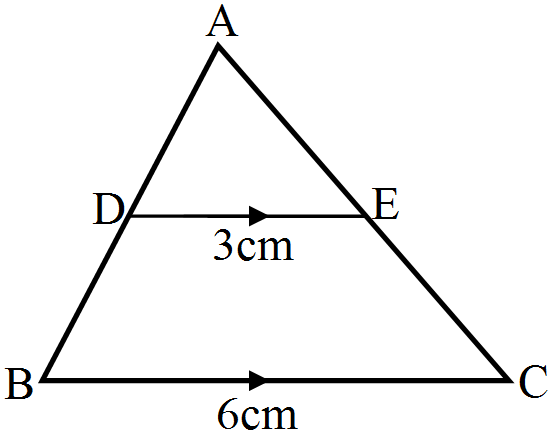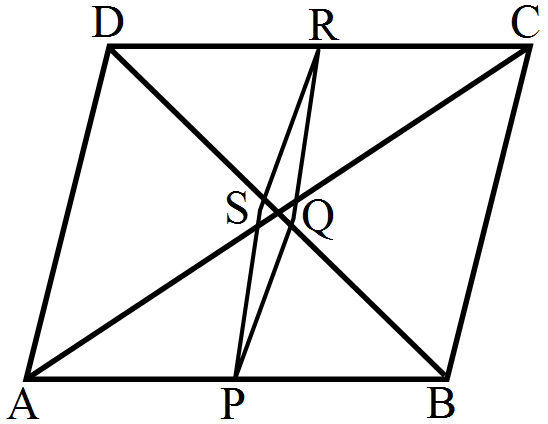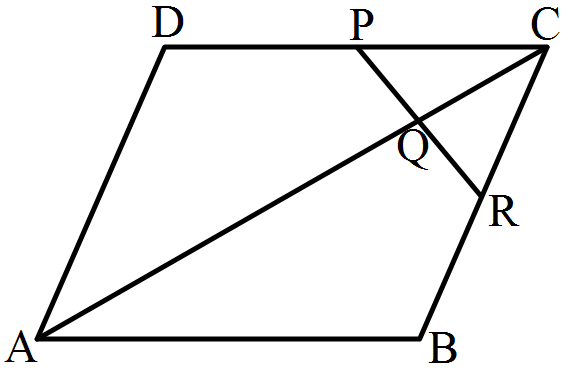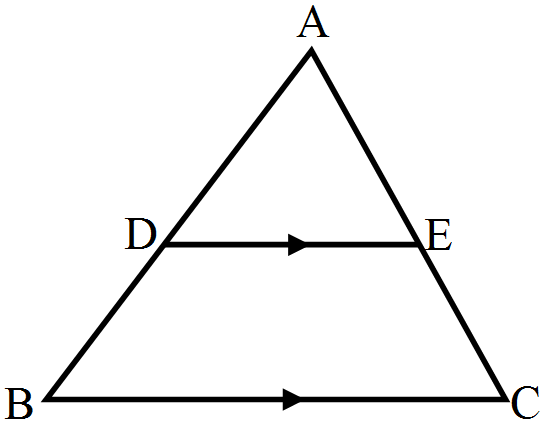The sides of certain triangles are given below. Determine them are right triangles:
1.6cm, 3.8cm, 4cm.
1.6cm, 3.8cm, 4cm.
For a given triangle to be a right angled, the sum of the squares of the two sides must be equal to the square of the largest side.
let a = 1.6cm, b = 3.8cm and c = 4cm
$\big(\text{a}^2+\text{b}^2\big)=\big[(1.6)^2+{(3.8})^2\big]\text{cm}^2$
$=(2.56+14.44)\text{cm}^2=17\text{cm}^2$
$\text{c}^2=(4)^2=16\text{cm}^2$
$\therefore\big(\text{a}^2+\text{b}^2\big)\not=\text{c}^2$
Hence, the given triangle is a right triangle.
let a = 1.6cm, b = 3.8cm and c = 4cm
$\big(\text{a}^2+\text{b}^2\big)=\big[(1.6)^2+{(3.8})^2\big]\text{cm}^2$
$=(2.56+14.44)\text{cm}^2=17\text{cm}^2$
$\text{c}^2=(4)^2=16\text{cm}^2$
$\therefore\big(\text{a}^2+\text{b}^2\big)\not=\text{c}^2$
Hence, the given triangle is a right triangle.
Download our appand get started for free
Experience the future of education. Simply download our apps or reach out to us for more information. Let's shape the future of learning together!No signup needed.*
Similar Questions
- 1$\triangle\text{ABC}\sim\triangle\text{DEF}$ such that $\text{ar}(\triangle\text{ABC})=64\text{cm}^2$ and $\text{ar}(\triangle\text{DEF})=169\text{cm}^2.$ If BC = 4cm, find EF.View Solution
- 2In the given figure, $DE || BC$. If $DE = 3\ cm$, $BC = 6\ cm$ and $\text{ar}(\triangle\text{ADE})=15\text{cm}^2,$ find the area of $\triangle\text{ABC}.$View Solution

- 3The corresponding sides of two similar triangles are in the ratio $2 : 3.$ If the area of the smaller triangle is $48\ cm^2,$ find the area of the larger triangle.View Solution
- 4View SolutionABCD is a quadrilateral in which AD = BC. If P, Q, R, S be the midpoints of AB, AC, CD and BD respectively, show that PQRS is a rhombus.

- 5In a trapezium ABCD, it is given that AB || CD and AB = 2CD. Its diagonals AC and BD intersect at the point O such that $\text{ar}(\triangle\text{AOB})=84\text{cm}^2.$ Find $\text{ar}(\triangle\text{COD}).$View Solution
- 6The corresponding sides of two similar triangles ABC and DEF are BC = 9.1cm and EF = 6.5cm. If the rerimeter of $\triangle\text{DEF}$ is 25cm, find the perimeter of $\triangle\text{ABC}.$View Solution
- 7View SolutionState the midpoint theorem.
- 8If the lengths of the sides BC, CA and AB of a $\triangle\text{ABC}$ are a, b and c respectively and AD is the bisectore of $\angle\text{A}$ then find the lengths of BD and DC.View Solution
- 9ABCD is a parallelogram in which P is the midpoint of DC and Q is a point on AC such that $\text{CQ}=\frac{1}{4}\text{AC}.$ If PQ produced meets BC at R, prove that R is the midpoint of BC.View Solution

- 10D and E are points on the sides AB and AC respectively of a $\triangle\text{ABC}$ such that DE || BC:View Solution
AD = (7x - 4)cm, AE = (5x - 2)cm, DB = (3x + 4)cm and EC = 3x cm.

